Russia 'not seeking conflict' - Putin tells nation
- Published
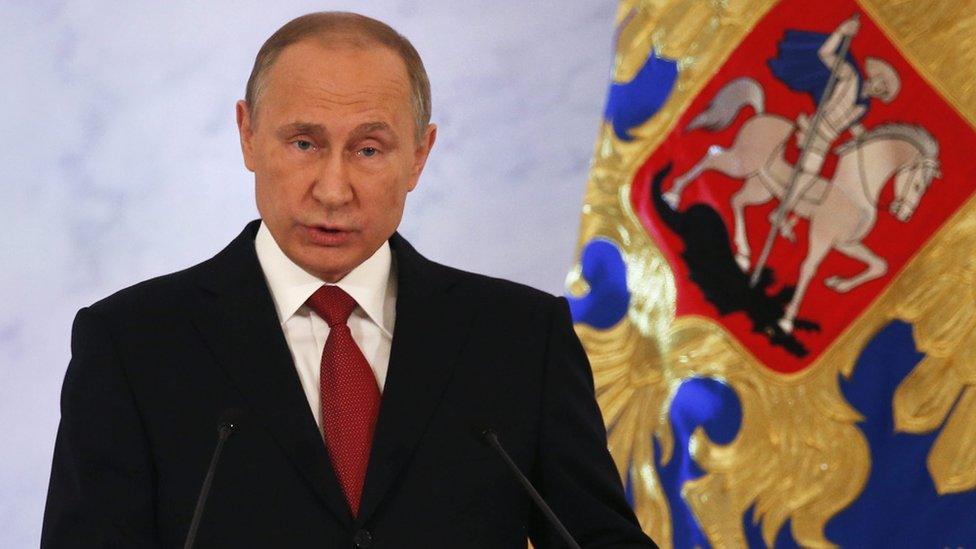
President Putin's state-of-the-nation speech was televised live and lasted one hour 12 minutes
Russia is "not seeking conflict with anyone", President Vladimir Putin has said in his annual Kremlin speech to parliament and the nation.
"Unlike some foreign colleagues who see Russia as the enemy, we do not seek - and never sought - enemies. We need friends," he said.
But "we will not permit harm to our interests", he added.
He said Russia was ready to work with the new US administration to fight terrorism.
Mr Putin has previously said he hopes for better relations with the US once President-elect Donald Trump takes office.
He praised the courage of Russian military personnel fighting rebel groups in Syria, in support of President Bashar al-Assad - and drew applause in the ornate Kremlin hall.
"Of course I'm counting on joint efforts with the US in fighting a real - not invented - threat, that is, international terrorism," he said.
He also warned that any attempt to "break the strategic parity" could be globally catastrophic - an apparent reference to the Russian-US nuclear balance.
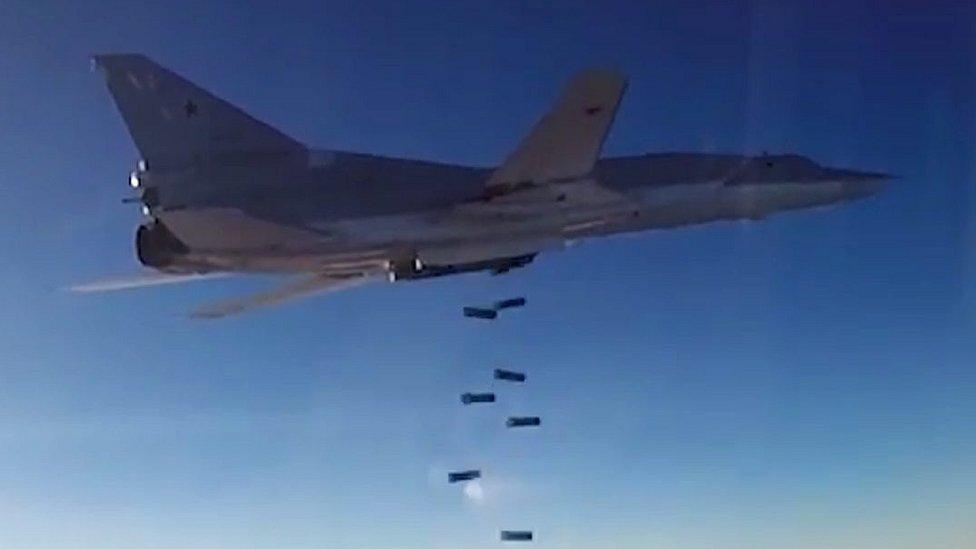
A Tu-22M3 bomber over Syria: Russia can now conduct accurate long-range strikes, Mr Putin said
US and EU politicians have criticised the heavy Russian bombing campaign in Syria, especially in Aleppo. They say Russia should strike harder against so-called Islamic State (IS), instead of backing President Assad's forces, who are accused of grave human rights abuses.
'Anti-doping programme'
Mr Putin highlighted examples of what he called foreign pressure on Russia, and included the recent Olympic doping scandal involving Russian athletes.
Describing the scandal as a "blessing in disguise", he said Russia was putting in place an outstanding anti-doping system early next year.
In a humiliating blow to the country's sporting pride, a World Anti-Doping Agency inquiry uncovered evidence of state-sponsored doping that led to a ban on a number of Russian athletes from the 2016 Rio Olympics, as well as the entire Paralympics team.

Avoiding anti-Western rhetoric - by Sarah Rainsford in Moscow:
This was a speech short on slogans and snappy soundbites. If there was a theme, then it was one of unity.
It was a call to Russians to pull together as patriots, in what Vladimir Putin admitted were still extraordinary, tough economic times.
He has long tried to achieve that by highlighting Russia's external enemies. But with a potential US ally now on his way to the White House - and perhaps sniffing an end to sanctions - Mr Putin has toned down his rhetoric.
In fact, he pushed international affairs right to the end of his speech and talked of needing friends, not enemies.

Mr Putin also saw scope for better relations with some EU countries, despite the EU sanctions imposed because of Russia's intervention in Ukraine.
He spoke of widening the Russian-led Eurasian partnership, saying: "I'm convinced that this conversation is possible with states of the European Union, where there is growing demand for an independent, subjective, political and economic course. And we see that in the results of elections."
Most of his speech focused on Russia's economic and social challenges. On the problem of corruption he said "it has become an unfortunate practice here to whip up a media frenzy around so-called high-profile cases".
"The fight against corruption is not for show," he stressed.
Last month Russia's Economy Minister Alexei Ulyukayev was charged with taking a $2m (£1.6m) bribe to endorse a state takeover in the oil industry.
He pleaded not guilty to the charge. He is the highest-ranking Russian official held since the 1991 coup attempt in what was then the USSR.
- Published9 November 2016
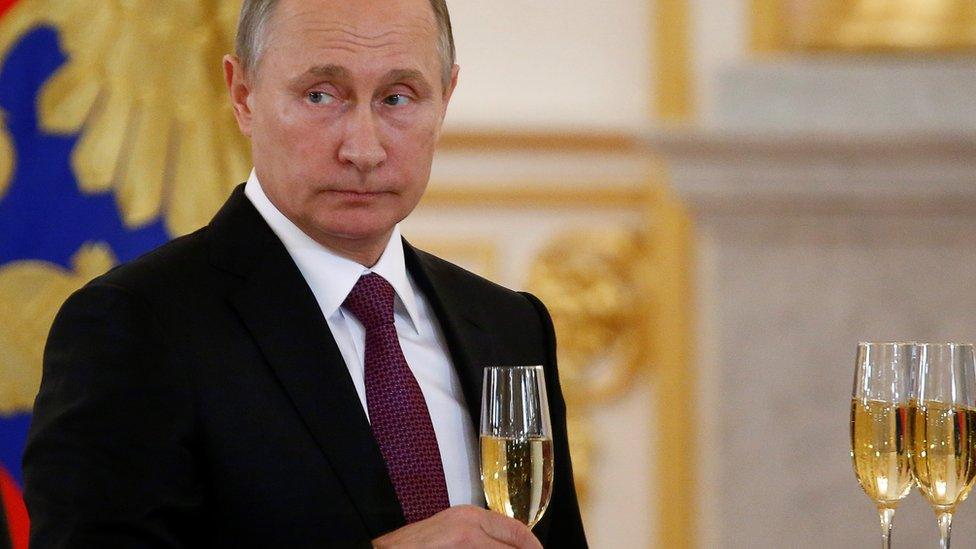
- Published30 November 2016
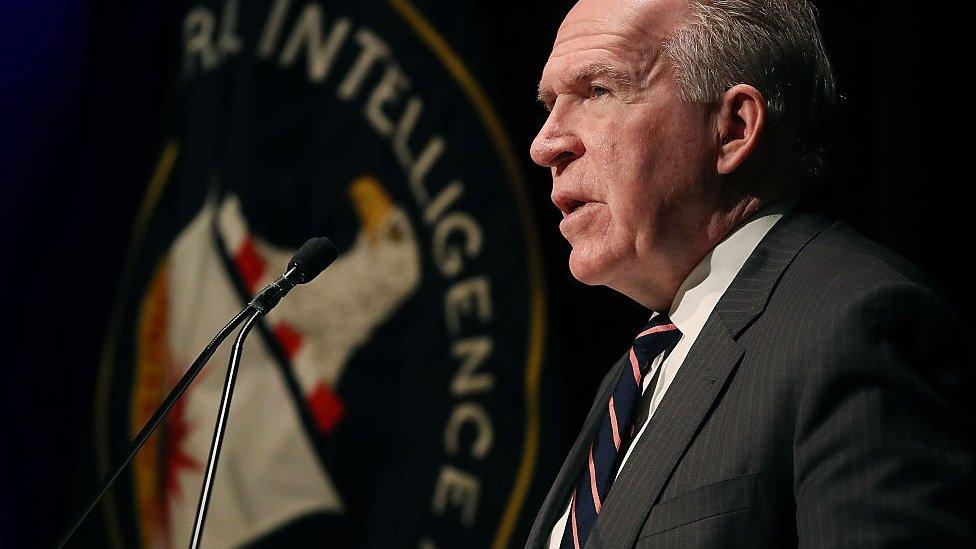
- Published14 November 2016
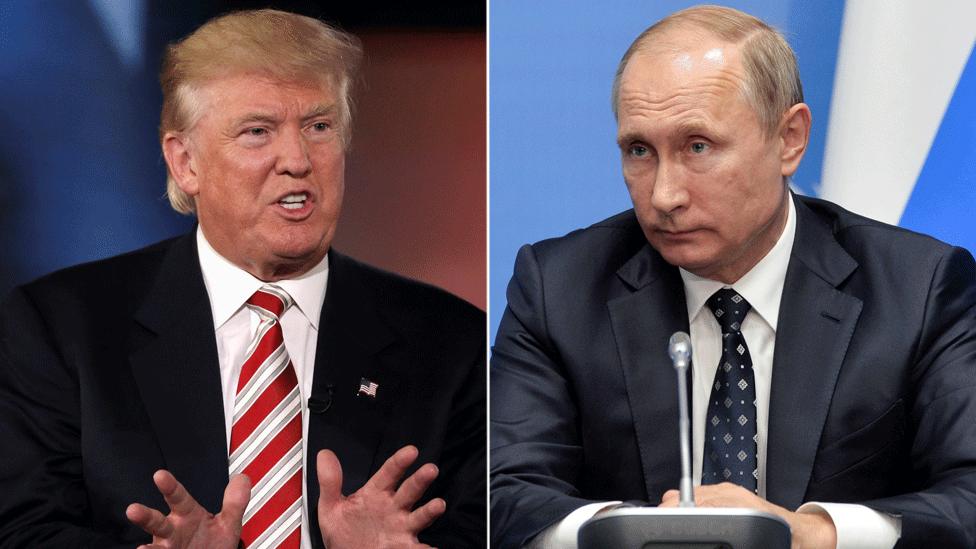
- Published19 September 2016
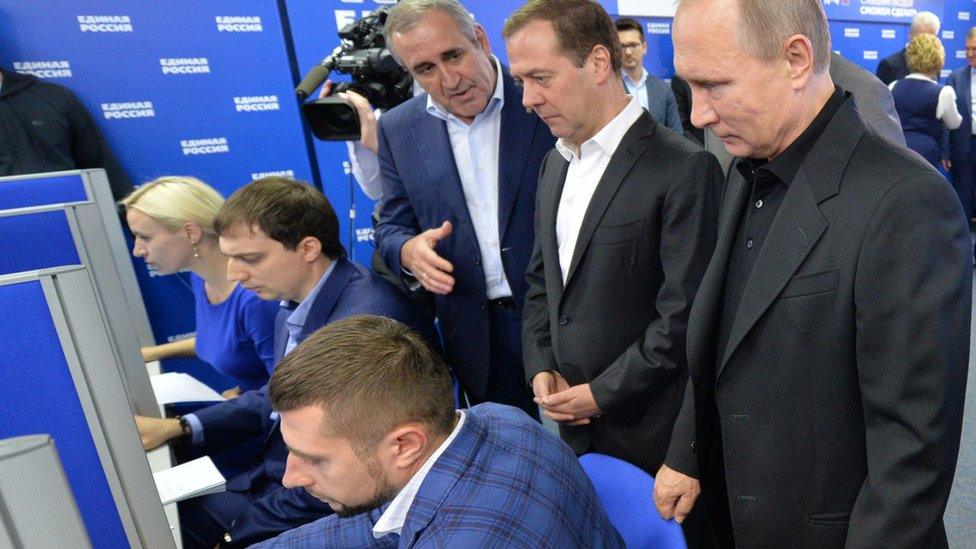
- Published17 March 2024
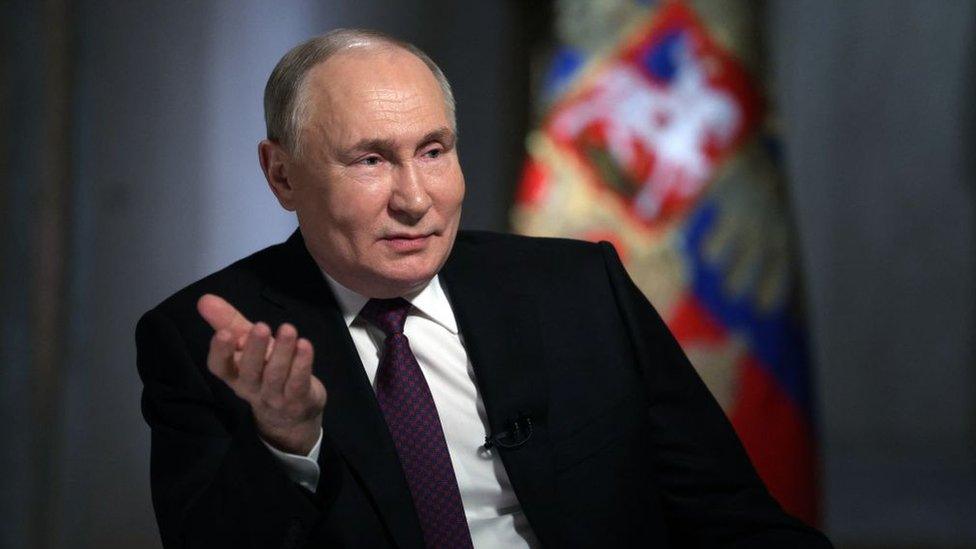
- Published16 November 2016